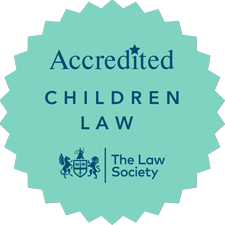
29 January 2025
Child Arrangements Explained: What You Need to Know
A Child Arrangements Order is often put in place when parents are not able to agree where the child should stay. The order gives details of where the child will live and when/how they should spend time with the other parent. The court will make these decisions by taking a child centered approach by making sure that the child’s best interests are considered through the welfare checklist contained within the Children Act 1989:
- Child’s wishes and feelings (taking into account their age and understanding);
- Child’s physical, emotional needs;
- Child sex, age and background;
- Any harm the child has suffered or is at risk of suffering.
Child Arrangements (lives with)
The court can decide who the child should live with which is usually the parent that they spend the majority of time with, and therefore known as the resident parent. The court can also make a ‘shared care’ order which means that the child is deemed to live with both parents as he or she will be spending equal time with each parent. There are various ways that ‘lives with’ arrangements can be split depending on each family and their lifestyle. For example, splitting the weeks in half or one week off and one week on.
Child Arrangements (spend time with)
If the child does not live with one parent, they may still spend time with that parent. This means that they may not spend the majority of their time with that parent, but they still have contact with that parent. Again, there are various ways that this arrangement can be made, and it depends on each family and what is best for the child. For example, overnight stay 1 day a week or a few hours at the weekend. It is usual for a child to spend alternating weekends with the parent they do not live with. It is also very common for school holidays to be split equally between the parents.
Contact Centres
In some circumstances it may be necessary for a parent to have supervised contact with the child. The court may order parents to have contact in a contact centre. This is usually where there may be safeguarding issues, or a parent is being reintroduced into the child’s life. This allows children to still see their parent but in a controlled environment, so it is safe for the child. There are two different types of contact offered within a contact center namely, supported and supervised. Supported means that the contact takes place in community venues and involves low-level supervision. Whereas supervised means that the contact is observed by an individual at all times. Usually, the contact centre is also able to provide a note of any session that is supervised.
Indirect contact
Indirect contact takes place when the child does not physically meet the parent but has contact through telephone or letters/cards. Sometimes the Court can order indirect contact which means that the parent can send cards, messages, photos etc for the children (via parents) and vice versa. Indirect contact can also be via video call and parents can be ordered to schedule a call with the child. This could also be alongside direct contact if the parent does not see the child for some periods of time. Indirect contact is usually the starting point when the child has not met the absent parent.
Who does this apply to?
Anyone who has parental responsibility for the child can apply for a Child Arrangements Order. The individual has parental responsibility if they are the following:
- the child’s mother;
- the father who is married/ in civil partnership with mother at the time of birth; or if named on the birth certificate; or
- anyone who has been granted parental responsibility by an order from the court.
Parental responsibility means that the individual has rights and responsibilities towards the child. This means that they are entitled to make decisions about the child’s care, health, education, religion, and property.
It is possible for a person who does not have Parental Responsibly for the child to make an application for a Child Arrangements Order. This will include extended family members, or anyone closely involved in the child’s live. Such persons will be required to firstly make an application to the court to seek permission to apply for a Child Arrangements Order. The Court will consider various factors including the welfare checklist when considering such applications. The factors taken into account will include:
- the individual persons connection with the child
- the circumstances and nature of the application they are seeking to make
- whether the application will disrupt the child’s life.
If you need our assistance in relation to child arrangement orders then please contact our child law specialist, Moska Gharanei.











